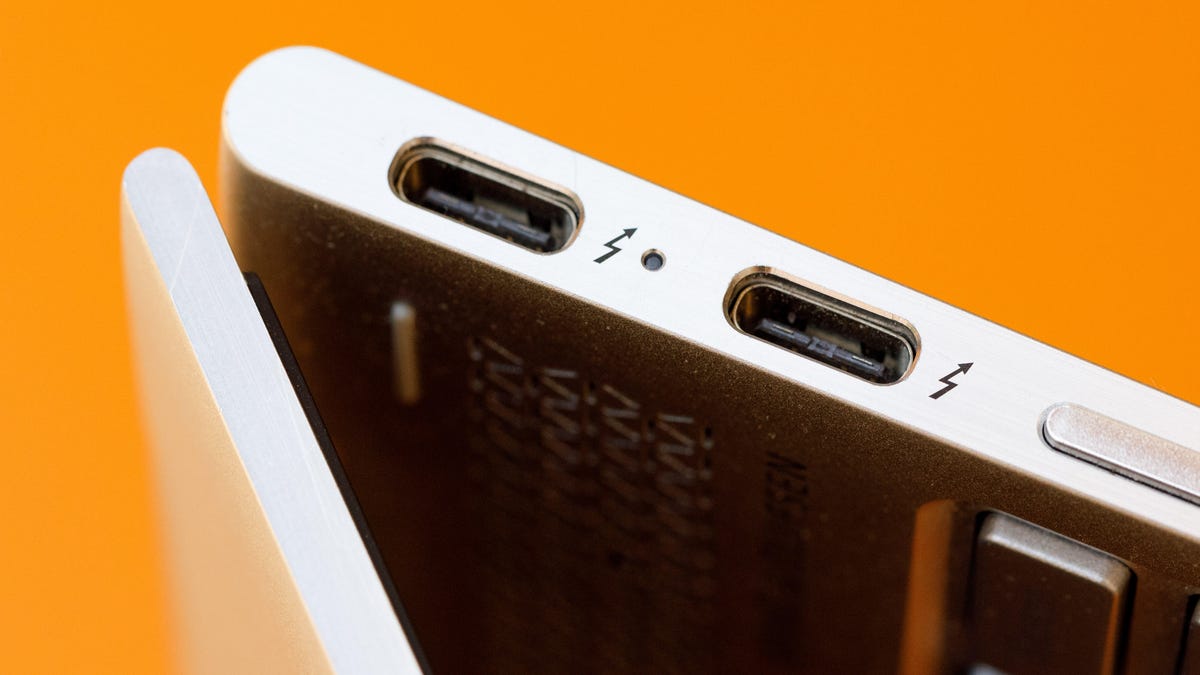 Why You Can Trust CNET
Why You Can Trust CNET USB about to get better at charging laptops and phones fast
New technology will let phones closely control any USB charger. Also at CES: Authentication helps block USB chargers from frying your laptop.

Oval USB-C ports are more and more common on laptops like this HP Spectre x360.
USB is getting more power -- the kind that's measured in watts and that's useful for charging phones and laptops -- and the companies behind it are trying to make that power easier to use.
At the CES tech show, the consortium in charge of USB announced work to ensure USB gets better at fast charging -- and won't zap your laptop.
The USB Fast Charger project will mean you're more likely to be able to top up your battery as fast as possible. Phone manufacturers need to be able to control chargers carefully, but often could count on only their own chargers to have the necessary smarts. The new charging technology will mean you'll be able to plug your phone into a third-party charger, the one at your friend's house, or your laptop's charger and still get the electricity you need as fast as possible.
"You'll see USB-certified fast chargers very soon," said Jeff Ravencraft, president of the USB Implementers Forum.
USB has lived up to the promise of ubiquity in its name, Universal Serial Bus. It got its start more than two decades ago as a way to plug mice and printers into PCs but now does everything from charge $2,500 Apple laptops to electrically heat gloves. Its latest expansion is from charging phones to charging laptops, a job that requires a lot more juice, but that's brought complications the USB consortium is trying to protect us from.
One problem cropped up in 2016, when new USB-C cables and ports were just arriving on phones and laptops. USB-C promises convenience by replacing the half dozen or so different plug types with one that works everywhere, and as an added bonus goes either side up so you don't have to fiddle when plugging in a cable. But new USB-C cables often had flaky or substandard components, a problem that came to a head when Google engineer Benson Leung, who tests USB-C devices, fried a laptop.
The USB group has an answer to that problem, a standard called USB authentication that should arrive this year. USB authentication means companies making things like USB controller chips, cables and chargers have to pass a certification test that grants each product a cryptographic seal of approval.
"When you plug in something unknown or potentially sketchy, it will protect you by not running high currents. And when you plug in something certified and authetnicated, it will know for a fact it's a good product," said Brad Saunders, chairman of the USB IF.
The authentication program also protects against some computer attacks that could be launched via a USB device. For example, a certified USB thumb drive wouldn't be able to log keystrokes because its certification doesn't grant USB keyboard permissions, said Rahman Ismail, USB-IF chief technology officer.
"Those kinds of things will become harder to spoof," Ismail said. "Certificates will contain a signature that attests to the capabilities of that device."
CES 2018: All the new products we've seen at the year's biggest tech trade show
Don't care about 5G? You will after CES 2018

